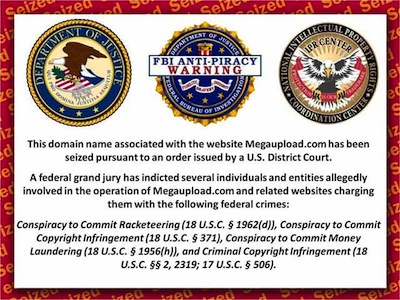MPAA attempts Hotfile takedown: Online file-sharing is dead

File-sharing site Hotfile faces being shut down without a lengthy trial or investigation into its alleged illegal practices or business conduct, after a leading U.S. rights group seeks to obtain a summary judgement.
The Motion Picture Association of America (MPAA) argues in a court filing, unsealed this week, that Hotfile is a "haven" for repeat copyright infringers, and should be shut down.
"Defendants even admit that they formed Hotfile 'to compete with' Megaupload", the filing says on page 10. "More than 90 percent of the files downloaded from Hotfile are copyright infringing, and nearly every Hotfile user is engaged in copyright infringement," the MPAA claims.

The papers name 20th Century Fox, Columbia Pictures, Disney, Universal Studios, and Warner Bros. as the plaintiffs.
But Hotfile, and others, make their money from premium memberships and affiliate programs. It's a core piece to their business model. Those with premium accounts have any download speed limits lifted, and affiliate accounts can generate vast sums of money. It beats advertising, hands down.
The MPAA argues that the system encourages users to upload and share copyrighted material and promote the links to link-sharing sites. Users earn more money depending on how many times a file has been downloaded. With a popular film or television series, this could generate hundreds of dollars in hours.
Whether or not Hotfile is in the wrong, the business model of file-sharing is at threat. It worked well until the Megaupload takedown.
Hotfile has since changed its policy, and "affiliate payments will no longer be based on download volume or referrals from websites," in a bid to climb out of the legal hole it has found itself in.
The seizure of Megaupload domains, servers, and assets by U.S. and New Zealand authorities forced a massive shift in online sharing culture, as other file-sharing sites reacted by either restricting service or limiting speeds.
Many of the companies behind these sites were quick to wipe their servers of any infringing content to stave off the inevitable swoop of law enforcement that many still expect.
The problem with cases like these is that --- as seen with TV Shack, which offered only links to infringing content, and was argued that it was "no different to Google" --- these services will always be abused by those who upload content illegally. Every service has its troublemakers. Does it mean the service should suffer? From a utilitarianism approach, users can always be kicked off the service for the greater good of the service or the community. But it rarely happens, because it generates these companies money.
Google takes down content based on Digital Millennium Copyright Act (DMCA) requests, as do other file-sharing sites. It's not only required by law to comply, but it is in their favour to do so.
Hotfile says it removes copyright infringing files upon request. It has a similar backend scanning system to determine whether a file is infringing copyright, like Google-owned YouTube, which has a system in place to prevent copyright material from the viewing public.
"Hotfile uses fingerprinting technology to block the uploading of files identified as infringing on copyright holders’ rights. Hotfile has recently upgraded its fingerprint technology to vCloud9, the latest, state-of-the-art fingerprint technology provided by Vobile," the company said in a news post.
These companies know the risks, but can do little about the online piracy problem. It's a far safer way to download content over HTTP than through the BitTorrent network, but as more people turn to file-sharing sites, the more of a target these sites become.
Because torrent sharing is peer-to-peer, it involves individual file-sharers rather than a conduit company. Individuals can be targeted easier than companies, and there's less fallout. There may be case law precedent, but it doesn't involve mass swathes of files being deleted or destroyed by the authorities.
Cloud services will continue to be plagued by similar copyright-related suits. It will not be long before rights-holders will muster up enough small fry sites like FileServe, Hotfile and Megaupload, to take on the behemoths of Google and Microsoft.
If the case against Hotfile goes through and the site is shutdown by way of a summary judgement --- which is likely, let's not fool ourselves --- then the file-sharing business will suffer a blow it probably will not recover from.
The cloud, in which file-sharing sites are a part of, should not be concerned with flood or fire, earthquakes or other natural disasters. While hacking and server breaches are a significant worry, the largest threat to the file-sharing industry is the law itself.
Related:
- FileSonic shutters: Another file-sharing site bites the dust
- FileServe shutters in light of file-sharing site crackdown
- ZDNet: Anonymous hacks DOJ, RIAA, MPAA and Universal Music websites
- UK web blacklist blocks access to file-sharing site Fileserve
- More ISPs asked to block access to file-sharing sites
- Megaupload data 'to be destroyed': Could feds swoop on file-sharers?
- ‘Guinea pig’ extradition case sets dangerous precedent for pirating Britons
- EU lawmakers vote to introduce net neutrality
- British ISP told to block Pirate Bay torrent site, or face court